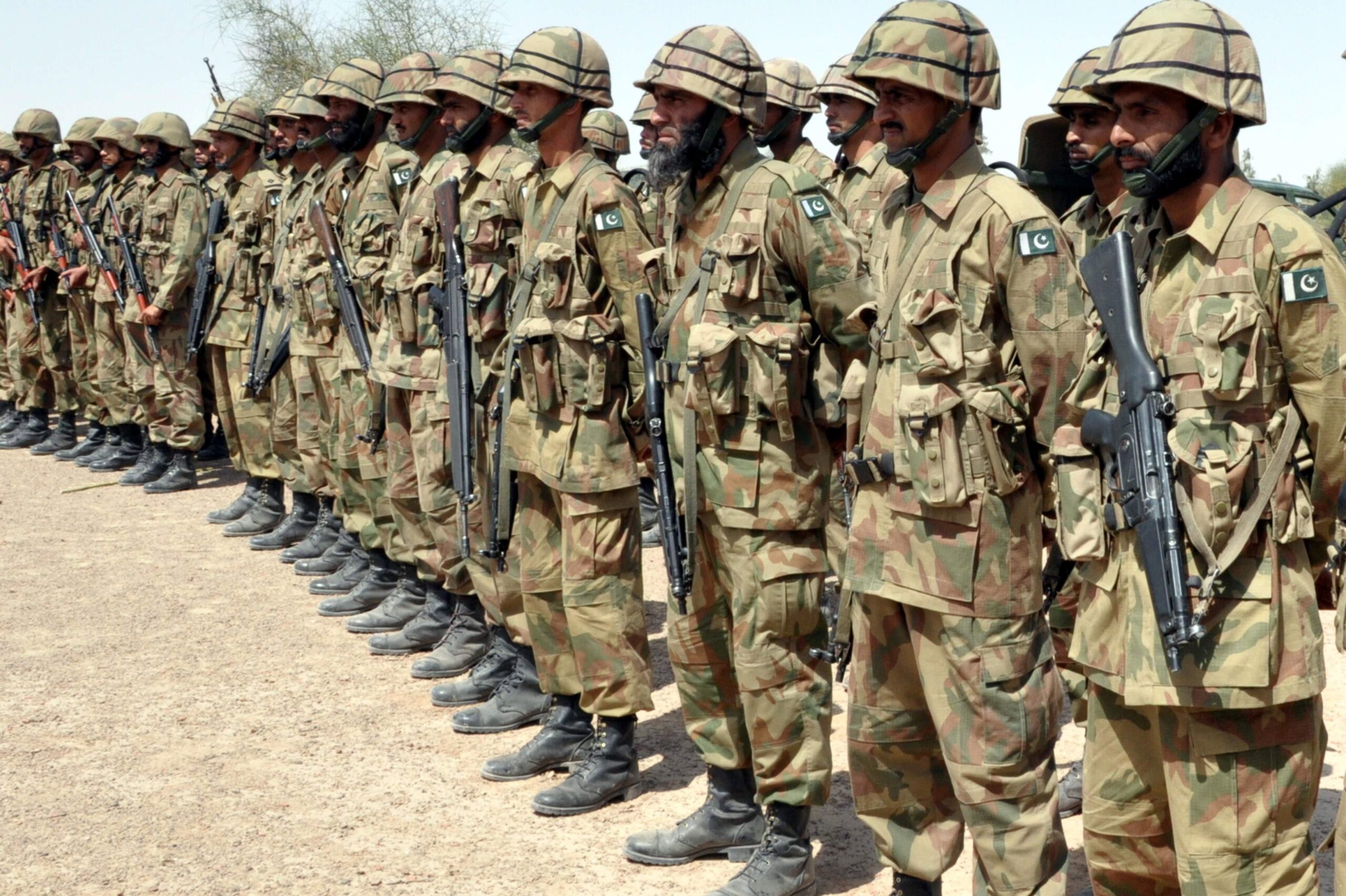
 Abdul Basit Alvi
Abdul Basit Alvi
Within any nation, the armed forces epitomize sacrifice, valor, and service, standing as guardians of borders, peacekeepers, and defenders of sovereignty. Yet amidst their unwavering dedication lies a facet often overlooked—the welfare of soldiers.
In numerous nations worldwide, governments honor the invaluable service and sacrifice of their military personnel through unique benefits, including free plot allotments. These endeavors aim to recognize soldiers’ dedication, provide them with a sense of security, and facilitate their transition to civilian life following years of service.
India’s Army Welfare Housing Organization (AWHO) extends subsidized housing and free plot allotments to serving and retired army personnel. These plots are often situated in desirable residential areas and include basic infrastructure such as roads, water supply, and electricity connections. The AWHO endeavors to enrich the quality of life for military personnel and their families by offering affordable housing options.
While the United States typically doesn’t provide free plot allotments to military personnel, it offers programs to assist service members in home purchases. For instance, the Department of Veterans Affairs (VA) furnishes home loan guarantees for eligible veterans, active-duty service members, and certain surviving spouses. These loans frequently feature favorable terms and don’t mandate a down payment, enhancing homeownership accessibility for military personnel.
Russia’s Ministry of Defense offers various forms of support to military personnel, encompassing access to housing and real estate. While there might not be specific programs dedicated to providing free plot allotments, service members could be eligible for preferential treatment when applying for government-subsidized housing or land. Moreover, certain military installations might offer housing options tailored for personnel and their families.
China’s People’s Liberation Army (PLA) integrates housing benefits into its welfare system. Though widespread initiatives for free plot allotments might not exist, military personnel could access subsidized housing or receive preferential treatment when purchasing residential properties. The PLA’s objective is to ensure the well-being and stability of its personnel through housing support.
In the United Kingdom, military personnel may qualify for housing assistance via the Ministry of Defence (MOD) housing scheme. While this may not encompass free plot allotments, service members could receive subsidies or allowances to assist with housing costs. Additionally, the MOD manages various housing estates and accommodation options for military personnel stationed both domestically and abroad.
These instances highlight the varied approaches taken by countries to support their military personnel through housing and plot allotment initiatives. While specific programs may differ, the overarching objective remains consistent: to acknowledge the sacrifices of armed forces personnel and provide them with tangible benefits that enhance their well-being and quality of life.
In the case of Pakistan, there appears to be limited or no provision for Army Personnel despite their remarkable and selfless service to the country. Defense Housing Authority (DHA) plots or military housing flats and houses are not provided free of cost to any Army Officer or Junior Commissioned Officer. DHA acquires land through purchase from the government or private owners. There are instances where landowners have refused to sell their land, resulting in the presence of villages within DHA areas. Officers contribute a portion of their salary over 25 to 30 years for the acquisition of plots, flats, or houses, often facing misconceptions that they receive everything for free. It’s important to note that a Provident fund exists in every public or private institution, and military personnel have capital expenditure deducted from their salaries, with the accumulated funds invested in the Army Welfare Trust and other institutions, providing retirement benefits to employees. Additionally, the salaries of approximately one million Army, Navy, and Air Force personnel contribute to the country’s economy.
Moreover, there are myths and misconceptions regarding military audits. In the domain of defense and security, where precision and accountability are paramount, military audit serves as a cornerstone in upholding integrity, efficiency, and prudent resource management. Beyond a mere bureaucratic exercise, military audit assumes a crucial role in safeguarding national security interests, optimizing operational efficacy, and bolstering public trust.
Military audit assumes a pivotal role in ensuring fiscal responsibility within defense organizations. By scrutinizing budget allocations, expenditures, and financial transactions, auditors furnish assurance that resources are utilized judiciously and in adherence to established protocols. This fosters transparency and accountability, enabling defense establishments to showcase prudent financial management and maintain public confidence in their stewardship of taxpayer funds. Given the sensitive nature of defense operations, the military is susceptible to risks such as fraud, corruption, and financial mismanagement. Military audit serves as a critical defense against such threats by systematically examining financial records, procurement processes, and internal controls. Through thorough examination, auditors can detect anomalies, irregularities, and instances of misconduct, thereby protecting defense resources and upholding the integrity of defense institutions. Beyond financial considerations, military audit assumes a vital role in optimizing operational efficiency and efficacy. By assessing organizational structures, logistical processes, and resource deployment, auditors pinpoint inefficiencies, redundancies, and areas for enhancement. This empowers defense establishments to streamline operations, bolster readiness, and optimize the utilization of limited resources, ultimately fortifying national defense capabilities. Military audit ensures adherence to a plethora of regulatory standards, legal obligations, and international commitments. From procurement guidelines to arms control accords, defense organizations navigate a complex array of legal frameworks necessitating meticulous compliance. Auditors offer assurance that these obligations are fulfilled, mitigating legal risks and upholding the reputation of defense establishments on the global stage. In an era of multinational operations and coalition warfare, interoperability and accountability assume paramount importance. Military audit promotes interoperability by verifying that defense organizations adhere to shared standards and protocols, facilitating seamless cooperation among allied forces. Furthermore, audit strengthens accountability by holding military leaders accountable for their decisions and conduct, thereby nurturing a culture characterized by transparency, professionalism, and trust among partner nations. Public trust is fundamental for the legitimacy and efficacy of defense establishments. Military audit assumes a pivotal role in cultivating public trust by furnishing independent assurance regarding the integrity, efficiency, and effectiveness of defense operations. By exemplifying transparency, accountability, and responsible governance, auditors reinforce public confidence in defense institutions, thus fortifying the social contract between citizens and the armed forces.
Additionally, there exist misconceptions about the audit system of the Pakistan Army. It is imperative to note that the audit, salaries, and TADA (Traveling Allowance Daily Allowance) of the Pakistan Army, Navy, and Air Force fall under the purview of a distinct entity, the Controller of Military Accounts, which comprises entirely civilian personnel, with officers recruited through the Central Superior Services (CSS). Various audits are conducted annually, triennially, and every five years, with a mandate for timely resolution. Audit objections left unresolved for prolonged periods are referred to the Public Accounts Committee, chaired by the Leader of the Opposition. Further details regarding audits can be accessed on the website of the Controller of Military Accounts (pmad.gov.pk/index.php?p=in…). The Pakistan Military Accounts Department is audited by the Accountant General of Pakistan. Indeed, the Pakistan Army stands as the epitome of discipline and transparency within the nation and serves as a benchmark for other Pakistani institutions.
Recognizing the paramount importance of the Pakistan Army for the country, it is imperative to refute baseless and unfounded allegations aimed at sowing discord against our defenders. Supporting our armed forces transcends mere patriotic sentiment; it constitutes an indispensable pillar of national security, sovereignty, and prosperity. From defending borders to providing disaster relief, the role of the military encompasses a multitude of responsibilities that are indispensable.
Our armed forces serve as the ultimate protectors of our nation’s sovereignty and territorial integrity. By maintaining a robust and capable military, we deter potential aggressors, safeguard against external threats, and uphold our independence. Investing in defense capabilities ensures that we possess the means to safeguard our borders and assert our national interests on the global stage, thereby securing our sovereignty for future generations. National security stands paramount to the welfare and prosperity of our nation. Our armed forces hold a central role in safeguarding our citizens, infrastructure, and way of life from an array of threats, encompassing terrorism, cyberattacks, and geopolitical instability. By furnishing requisite resources, training, and backing to our military, we augment our ability to detect, deter, and respond to security challenges, thereby fostering peace and stability domestically and internationally. During times of crisis, our armed forces frequently lead response and recovery endeavors. Whether delivering humanitarian aid amid natural disasters, executing search and rescue missions, or aiding in pandemic mitigation, our military personnel exhibit valor, resilience, and altruism in serving our communities. By arming and empowering our armed forces to react promptly and efficiently to emergencies, we enhance our collective resilience and capacity to surmount adversity. Supporting our armed forces nurtures a sense of unity, pride, and solidarity among citizens. Acknowledging the sacrifices and contributions of our military personnel fosters a shared national identity and purpose that transcends divisions and differences. Whether through ceremonies, commemorations, or outreach initiatives, conveying gratitude and esteem for our armed forces bolsters social cohesion and reinforces the ties of citizenship, patriotism, and mutual respect. Our armed forces play a pivotal role in advancing global stability, peacekeeping, and humanitarian endeavors. Through engagement in international missions, peacekeeping operations, and diplomatic endeavors, our military bolsters collective security and reaffirms our dedication to upholding shared values and principles. By backing our armed forces, we exhibit our allegiance to global cooperation, solidarity, and leadership in confronting mutual challenges and promoting common interests.
Dear readers, the nation is acutely aware of the malevolent intentions of anti-state elements seeking to tarnish the reputation of our Army. It is imperative to take decisive action against these elements and establish a structured mechanism to curb the dissemination of baseless propaganda lacking evidence and proof.





